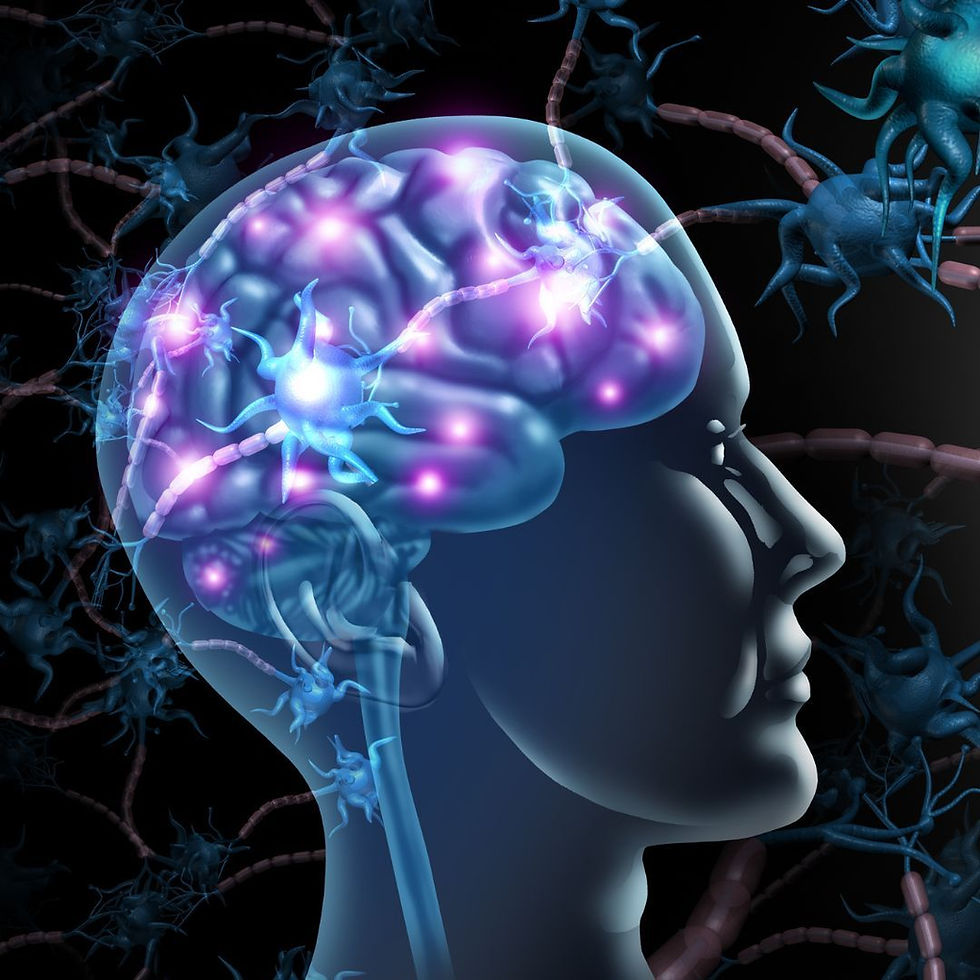Is TMS Therapy Safe? Myths and Facts Explained
- Laukik Patil

- Jun 6, 2025
- 3 min read
Updated: Jul 14, 2025

More people are discovering TMS treatment as an effective option for depression and anxiety. Perhaps you've heard about TMS, but the medical terminology might sound unfamiliar or concerning. It's natural to have questions about any new treatment, particularly regarding safety.
TMS (Transcranial Magnetic Stimulation) is a treatment that helps people with conditions like depression and anxiety. However, like any emerging therapy, there are numerous myths and misconceptions surrounding it. You might wonder whether it's painful, risky, or genuinely effective. These concerns are completely understandable.
Understanding TMS Treatment and How It Works
TMS stands for Transcranial Magnetic Stimulation. While this sounds complex, the concept is straightforward. TMS treatment uses targeted magnetic pulses to stimulate specific areas of the brain. Doctors recommend TMS to help people with depression or anxiety when traditional treatments haven't been effective.
During treatment, a trained technician places a small device against your head. This device delivers gentle magnetic pulses to your scalp, with each session lasting approximately 20 to 40 minutes. No anaesthesia is required—you will sit comfortably in a chair and can listen to music or chat with staff during the procedure. Once your session has finished, you can immediately resume your normal daily activities.
Is TMS Treatment Safe? Separating Myths from Facts
When first learning about TMS, you might imagine intimidating machines and dangerous side effects. This perception isn't accurate. TMS treatment has helped thousands of people and medical professionals monitor its safety rigorously. Let's address common concerns and distinguish between myths and reality.
The most common side effects include mild headaches or scalp sensitivity, similar to the feeling after wearing a tight hat for an extended period. Serious complications are extremely rare, and the majority of patients complete TMS treatment feeling significantly better.
Myth 1: TMS Treatment Is Painful

Fact: TMS doesn't cause pain. You'll experience a gentle tapping sensation rather than discomfort. The device sits near your head, and you will hear a rhythmic clicking sound. While this may feel unusual initially, it's not painful. Some people experience slight muscle twitching, but your doctor or TMS technician will monitor you throughout the entire treatment. After a few sessions, most patients become accustomed to the sensation. Some even report forgetting the machine is operating.
Myth 2: TMS Causes Brain Damage or Memory Loss

Fact: A common concern is that TMS might damage the brain or impair memory. TMS is fundamentally different from ECT (Electroconvulsive Therapy). Unlike ECT, which affects the entire brain and requires anaesthesia, TMS targets only specific brain regions and doesn't cause seizures or memory problems. Extensive research demonstrates that TMS is safe and doesn't cause cognitive impairment or brain damage.
Myth 3: Only Medication and Therapy Can Treat Mental Health Conditions

Fact: Many people believe they must take medication to manage their mental health. TMS treatment doesn't involve any medication—no drugs enter your body during this procedure. TMS focuses exclusively on specific brain areas using magnetic stimulation. For some individuals, TMS provides a safe alternative when medication doesn't work effectively or causes problematic side effects.
Some people also explore other non-pharmaceutical options like ketamine therapy for treatment-resistant depression. Both ketamine and TMS are becoming increasingly popular amongst those seeking innovative approaches to healing from depression or anxiety, particularly when traditional treatments haven't provided adequate relief.
Who Might Benefit from TMS?
TMS is typically recommended for adults with major depressive disorder who haven't responded adequately to at least one antidepressant medication. It's also used for certain anxiety disorders and other mental health conditions. Most patients require a series of sessions over several weeks, with many people experiencing improvement after the initial few weeks of treatment.
Your doctor will evaluate whether you're a suitable candidate based on your medical history, current symptoms, and previous treatment responses.
The Evidence for TMS Safety
Clinical studies involving thousands of patients demonstrate TMS safety. The research shows that serious side effects occur in less than 1% of patients, no hospitalisation or recovery time is needed, and patients can drive themselves to appointments. Long-term studies confirm no lasting negative effects.
Making an Informed Decision
TMS treatment represents a significant advancement in mental health care. Understanding the facts helps dispel unnecessary fears. TMS doesn't cause pain, doesn't damage the brain, and doesn't require medication. Most people experience only mild side effects, whilst serious risks remain extremely rare.
If you or someone you care about is considering TMS, remember these facts. Many individuals have found hope through TMS when other treatments proved insufficient. Don't hesitate to discuss any remaining questions with your healthcare provider. Your concerns are valid, and seeking information demonstrates wisdom. Effective help is available, and you deserve to feel better.
Taking the Next Step
If you're wondering whether TMS treatment might be right for you, professional guidance can help you make an informed decision. Neuromed Clinic Ireland provides comprehensive, compassionate mental health support in a safe environment. We invite you to book a consultation where you can discuss your concerns with experienced professionals who genuinely listen and understand.
Contact us today to take that important first step towards better mental health.



Comments